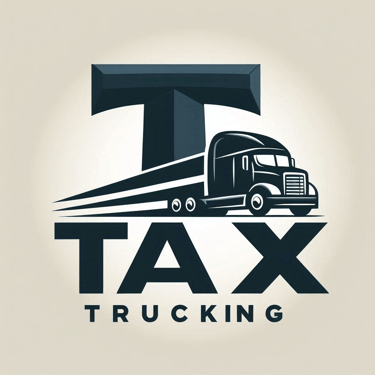10 Reasons Truck Drivers Should Consider Opening an S Corporation to Save on SE Taxes
S CORP
9/29/20242 min leer


Understanding the S Corporation Advantage
Truck drivers operate in a unique landscape where managing costs is crucial. One effective way to optimize expenses is by forming an S Corporation. An S Corporation, or S Corp, is a tax designation that allows profits to be passed through to shareholders, avoiding the double taxation typically associated with traditional corporations.
1. Reduced Self-Employment Taxes
One of the primary advantages of an S Corporation is the potential for significant savings on self-employment (SE) taxes. As a truck driver, your income can be substantial, and paying the full SE tax rate can cut into your profits. With an S Corp, only your salary is subject to SE taxes; the remaining profits can be distributed as dividends, which are not subject to these taxes.
2. Flexibility in Salary Determination
When you establish an S Corporation, you gain the flexibility to determine your own salary. As the owner, you can balance the amount you take as salary and what you keep as dividends. This means you can strategically plan your compensation to optimize tax efficiency while still receiving a reasonable salary for your work.
3. Enhanced Credibility
Operating as an S Corporation can enhance your credibility with clients and business partners. Many customers prefer to work with businesses that have a formal structure, as it often indicates professionalism and stability. This can lead to more contracts and better business opportunities for your trucking operations.
4. Tax Deductions for Business Expenses
As an S Corporation, you can deduct many business-related expenses before calculating your taxable income. This includes expenses like fuel, maintenance, insurance, and any equipment necessary for your trucking business. These deductions can significantly lower your overall taxable income.
5. Improved Retirement Plan Options
S Corporations enable truck drivers to establish retirement plans that provide tax advantages. Options like a Solo 401(k) or a SEP IRA allow for greater contributions than traditional retirement plans, effectively reducing taxable income while saving for retirement simultaneously.
6. Limited Liability Protection
Operating as an S Corporation provides limited liability protection, separating your personal assets from business liabilities. This means that if a lawsuit is filed against your trucking business, your personal assets are generally protected, offering peace of mind and financial security.
7. Opportunities for Income Splitting
With an S Corporation, there are opportunities for income splitting among family members or other shareholders. If family members are actively involved in your trucking business, you can distribute dividends to them, which may reduce the overall tax burden for the household.
8. Easier Business Continuity
Establishing an S Corporation helps facilitate smoother business continuity. In case of any untimely event affecting your ability to operate, the S Corporation can continue to exist independently, ensuring that your business legacy persists while your estate is settled.
9. Attract Investment More Easily
Your S Corporation can make it easier to attract investors or partners. The structure allows for multiple shareholders, providing a viable route for capital infusion without losing control over the operation. This can be critical for scaling your trucking business.
10. Compliance and Structuring Advantages
Operating as an S Corporation can provide better compliance and structuring advantages. The record-keeping and organizational requirements enforced by S Corp status tend to be more favorable for long-term business management compared to a sole proprietorship.
In conclusion, truck drivers who consider forming an S Corporation can potentially save a significant amount on self-employment taxes, along with enjoying numerous other financial and operational benefits. It is advisable to consult with a tax professional to ensure that this path aligns with your financial goals.
